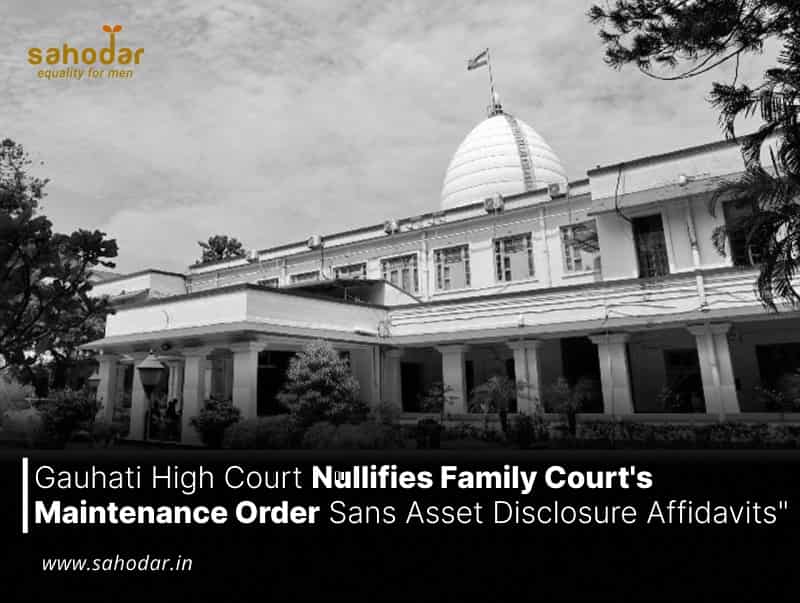The Gauhati High Court recently overturned a Family Court directive instructing a husband to provide his wife with interim maintenance of Rs. 5,000 per month. This decision was based on the absence of asset and liability disclosure affidavits from both parties during the Family Court proceedings.
Justice Robin Phukan, presiding over a single-judge bench, made the following observation:
“Here in this case, having gone through the impugned order dated 31.08.2023, I find that the petitioner and also the respondent have not submitted their affidavits, disclosing the assets and liabilities in the aforementioned proceeding before the learned Court below before deciding the issue of interim maintenance as mandated by the Hon’ble Supreme Court in paragraphs 64 and 65 in the case of Rajnesh (supra) and also in the case of Aditi Alias Mithi (supra).”
The counsel representing the petitioner (husband) contended that the Family Court’s determination of the interim maintenance quantum relied solely on the respondent’s (wife’s) petition. Despite the petitioner’s request for an adjournment to enable the filing of objections to said petition, the Court proceeded with the hearing and issued the contested interim maintenance order dated August 31, 2023.
It was further argued that in accordance with the pronouncement of the Supreme Court in Rajnesh v. Neha & Anr. (2021), the Family Court is duty-bound to obtain affidavits disclosing the assets and liabilities of both parties to the proceedings when rendering such orders. The petitioner asserted that the Family Court failed to comply with this prerequisite in the present matter.
Reliance was placed on the Supreme Court’s ruling in Aditi Alias Mithi v. Jitesh Sharma (2023 SCC OnLine SC 1451), wherein it was held that the guidelines delineated in Rajnesh (supra) are obligatory for all courts in the adjudication of maintenance cases.
The Court noted, “Though the petitioner has sought time to file objection, the same was refused by the learned Court below. That being so, the impugned order cannot withstand the legal scrutiny, having been passed ignoring the law down by Hon’ble Supreme Court.”
Hence, the Court quashed the impugned order and remanded the matter to the Family Court, granting both parties the opportunity to file affidavits disclosing their assets and liabilities. Subsequently, the Family Court is instructed to conduct a new hearing and issue requisite orders within a timeframe of one month.

